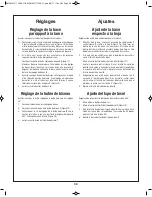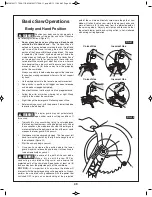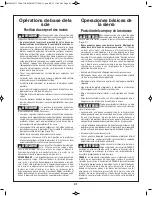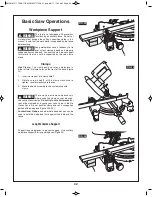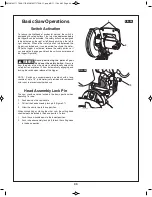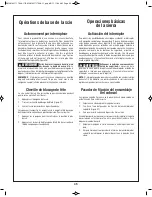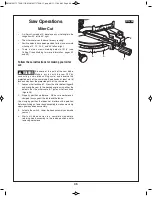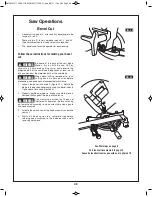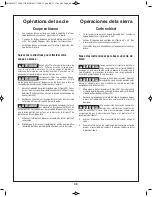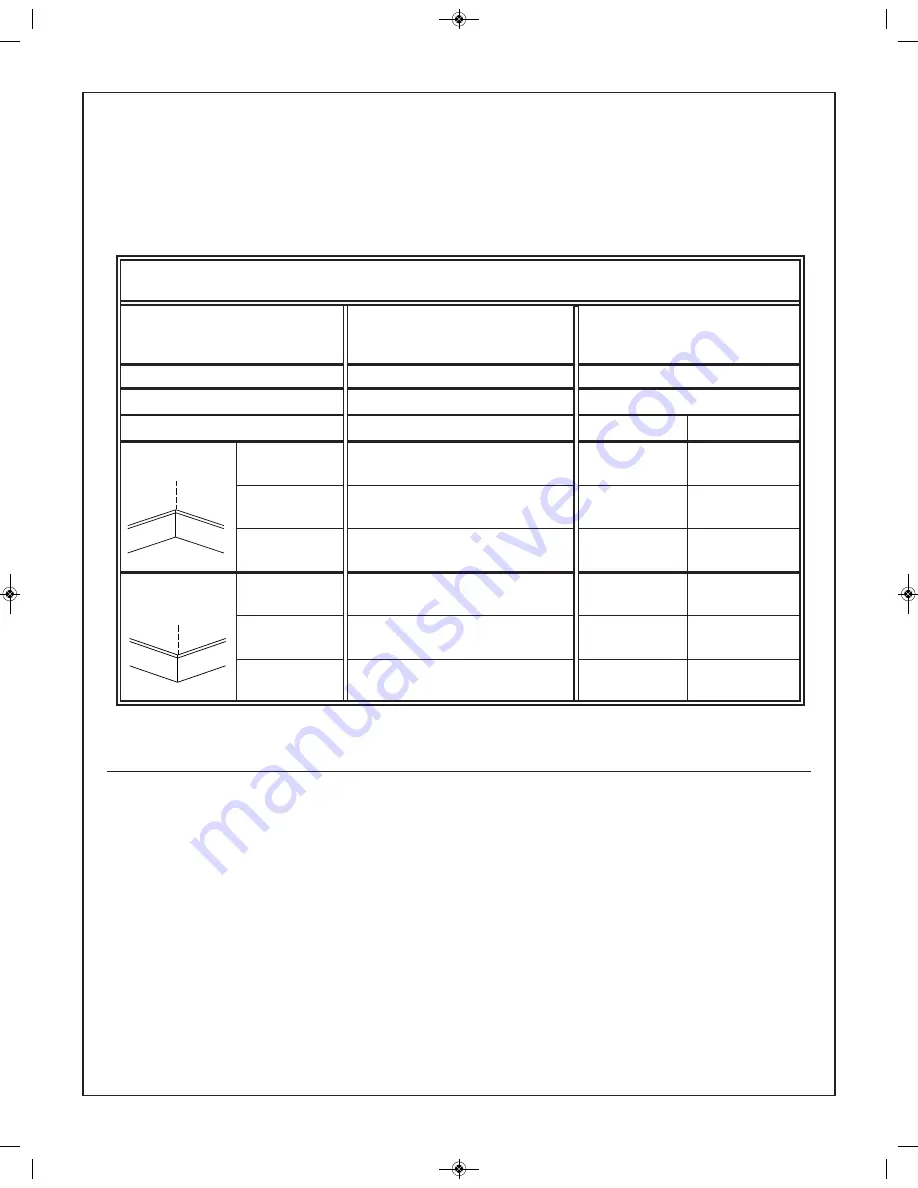
52
Saw Operations
•
Base molding can be cut vertical against fence or flat on
the table.
•
Follow the table for helpful hints on cutting base molding.
Base Molding
BASE MOLDING CUTTING INSTRUCTIONS
SETTINGS
Vertical Position
Horizontal Position
/
Back of molding is
Back of molding is flat
INSTRUCTIONS
against the fence
on the table
Sliding Fence
Far Right Position
Move to proper position
Bevel Angle
0°
45°
Molding position
Left Side
Right Side
Left Side
Right Side
Inside
Miter Angle
Left at 45°
Right at 45°
0°
0°
corner of wall
Molding
Bottom
Bottom
Top against
Bottom
position
against table
against table
fence
against fence
Finished
Keep left
Keep right
Keep left
Keep left
side
side of cut
side of cut
side of cut
side of cut
Outside
Miter Angle
Right at 45°
Left at 45°
0°
0°
corner of wall
Molding
Bottom
Bottom
Bottom against
Top against
position
against table
against table
fence
fence
Finished
Keep left
Keep right
Keep right
Keep right
side
side of cut
side of cut
side of cut
side of cut
Left
Right
Right
Left
Cutting Crown Molding
•
Crown molding must be cut exactly to fit properly.
•
Your miter saw has special miter detents of 31.6° left and
right and a bevel indicator at 33.9° for cutting crown
molding flat on the table.
•
These special detents angles have been designed into
your compound miter saw for the standard crown molding
used in the United States with the following angles:
52° between the back of the molding and the top flat
surface that fits against the wall.
38° between the back of the molding and the bottom
flat surface that fits against the wall.
NOTE:
These detents cannot be used with 45° crown
molding.
•
Even though these angles are standards, most rooms do
not have angles of exactly 90°, therefore, you will need to
fine tune your settings using the detent override and the
vernier scale.
SM 2610017175 08-11:SM 2610017175 08-11.qxp 8/2/11 11:24 AM Page 52


